20 Critical Things to Do Before the Dollar Collapses

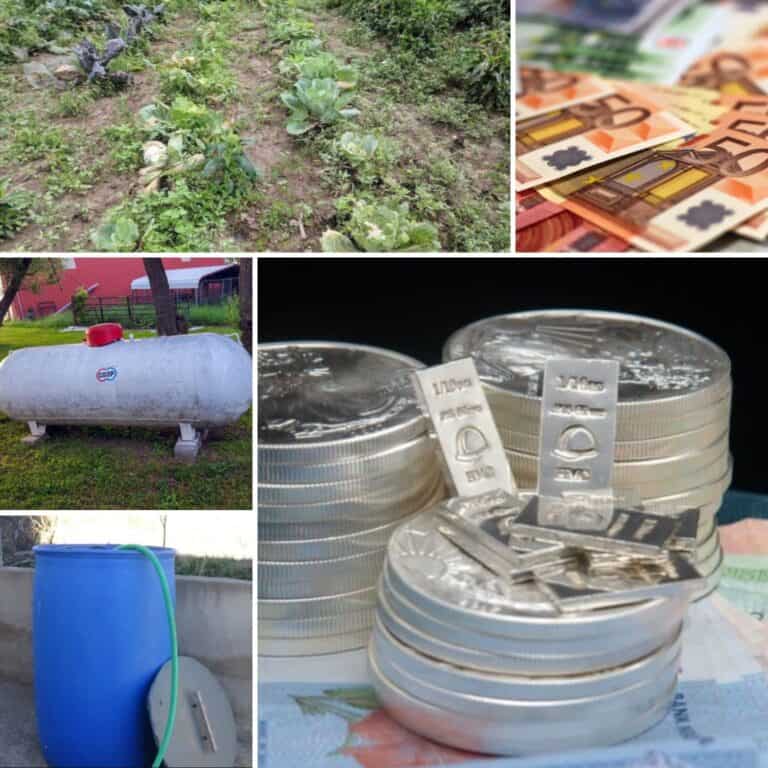
The United States government has been playing a dangerous game for too long. With rampant spending, corruption growing ever more insidious, and money being printed at a completely unsustainable rate, our debt is currently in the many trillions of dollars, and the economy is tanking.
It’s only a matter of time until we experience a genuine currency collapse, and the hyperinflation that will go along with it. This, more than any global cataclysm or nuclear war, is likely to devastate the lives of average people.
Nonetheless, if you stay calm and take the right action now, it’s possible to prepare for this just like anything else. Keep reading, and in this article, I’ll tell you about some critical actions you need to take now before the dollar goes bust.
One of the very first things you should do is to have more than one income stream, whether you’re still working a job, have a career of your own, or just depend on income from various investments and other assets.
There is no such thing as a sure thing when the dollar collapses. No matter how irreplaceable you think you are, no matter how crucial your job is, a financial catastrophe like this will touch every sector of life and society, and it invariably results in contraction.
It’s in your best interest to start up a side hustle, small business, or even a little bit of moonlighting at another job right now so you have a toehold: it can be a lot harder to get anything going once everyone around you is going bust and clamoring for work and resources.
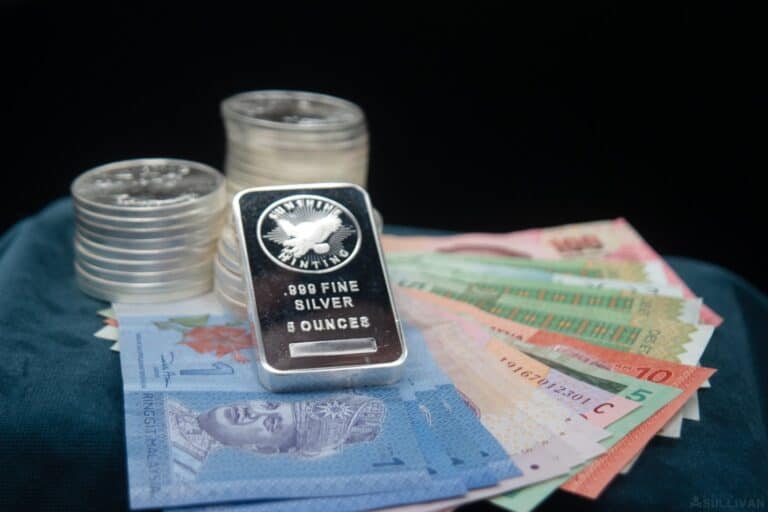
One of the smartest things any prepper can do to be ready for times of trouble is to put together a nest egg. Normally, this is cold, hard cash on hand, but considering that cash won’t be worth wiping your backside with after the dollar goes bust, that’s not going to help us.
Just like we’ve seen in other prosperous civilizations throughout the 20th century, a currency collapse means you’ll need wheelbarrows full of cash to even buy a loaf of bread.
Instead, start investing in precious metals like gold and silver…
Both have been used as currency since time immemorial, and even though you might not be able to make easy use of them as currency for small transactions, you can depend on them remaining valuable with anyone who still cares about material gain.
Not for nothing, a small quantity of gold can get you and your family a very big favor when you need it desperately—something else to keep in mind considering that much of the country will be in complete turmoil.
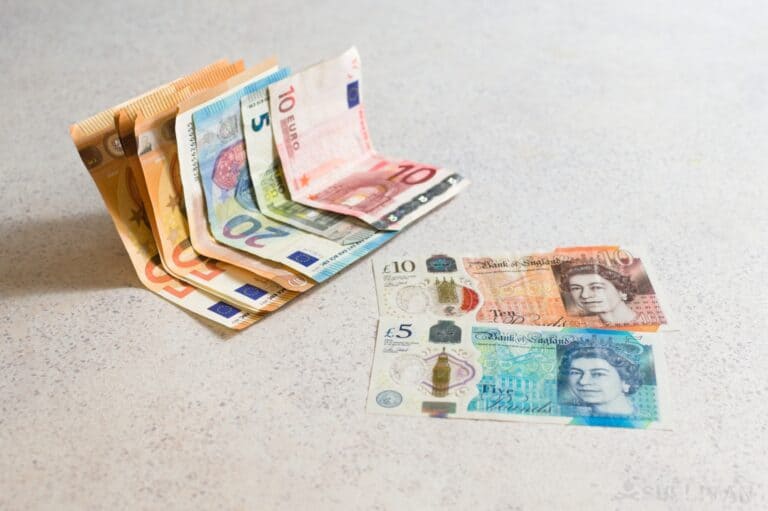
Something else you might want to consider is investing in foreign currency. This is a dodgy strategy considering how many global markets will be affected by the collapse of the dollar, but it is another one that historically has been used by financially savvy people to guard against total despondency caused by cratering currency.
I’m not a financial advisor, and you shouldn’t construe this as financial advice: you’ll need to talk to an expert about that and then make your own decision.
That said, having the right foreign currency might give you a backup option that could get you safe passage out of the country or get you resources that are desperately needed if you can find a way to exchange them here in the US.
Take the time to start learning the ins and outs of currency markets, and try to zero in on one that’s likely to remain stable, or potentially even increase in value, when the dollar sees a downturn.
If you’ve already got a portfolio of financial investments, it’s time to start going over them and getting out of some while the getting is good.
Things like stocks, digital assets tied to the dollar, money market accounts, CDs, mutual funds, bonds, and a lot more will start to crater just as fast as the dollar does when it implodes.
This means that whatever returns you are getting, or expecting, from them won’t keep pace with hyperinflation, and in the case of things like bonds, they might default themselves.
Stocks aren’t safe even in the best of times, and ones in companies that are entirely or almost totally dependent on consumer spending will go up in flames faster than you can blink.
I don’t say this to scare you, but I do say it to warn you: the end is nigh concerning the US dollar, and any investments that are propped up by the dollar will soon be laid low. Get out, and either diversify into the right stuff or convert it to actual survival necessities while you can.
This is something else you might want to get rid of while the getting is good.
Luxury goods like fancy automobiles, vacation properties, collectibles, and so forth will all start to devalue during massive economic downturns, so if you’ve been hanging on to them as a sort of Blue Chip you can convert to cash when you get into trouble, you are making a major mistake…
That’s because the market for these sorts of things will essentially evaporate when the dollar goes bad.
The buyer pool for items like these will shrink dramatically under the circumstances, and whoever is on the market will be shopping in a buyer’s market: they will be the ones setting the price, not you.
If you get into trouble and have to cut loose for pennies on the dollar luxury goods that you paid a fortune for, all that’s going to do is make your financial prospects even worse. Again, cash out now while you can and then put that cash to work for stuff that will actually help you.
If something makes you money or solves a tangible problem, it is an asset. If it doesn’t solve a problem or costs you money, it is a liability. Now is the time to eliminate things that are liabilities.
This can be:
Especially when it comes to real estate, whether it is vacant land, residential, commercial, or anything else, analyze the prospects of your tenants carefully:
If they’re going to get into trouble, and it’s all but certain they will, that means your income from the property will cease or contract.
Nonetheless, you’ll have to go right on paying taxes, maintenance, and everything else.
You’ve got to be ruthless in assessing your bottom line, and you must plan on your budget getting a whole hell of a lot tighter for the duration of the economic crisis.
You never want to have debt if you can avoid it, and you especially don’t want to have it during a dollar collapse because it’s only going to make you that much more vulnerable.
If you have the means and can do so while still provisioning yourself for tough times, make it a point to pay down debt as fast as you can.
However, you want to do it smart. In times of prosperity, the person who owes the debt has a problem; during a currency collapse, the person to whom the debt is owed has a problem.
That’s because contractually the amount owed does not change with inflation or the value of currency. This means the person who owes the debt might easily be able to pay it off with the substantially devalued currency.
If you are flush with cash but have a large debt to pay, it might be worth waiting until the dollar crashes.
If you are a business owner of any kind, it’s time to sharpen your pencil and really look over your operations for vulnerability. If it is dependent on resources or products from overseas, the dollar crash might result in those goods becoming fantastically expensive or completely unavailable.
If critical supplies and goods suddenly cost way more or simply cannot be sourced, you’ll be bankrupt or shuttered in short order. Now’s the time to start looking for alternate, domestic sources and making contact with those suppliers now to start laying the groundwork.
Obviously, the state of global commerce is such today that there’s virtually no business that isn’t, in some way, dependent on foreign goods at this point, even if it’s only tangentially.
Don’t assume you’ll be okay just because you do everything 100% American-made or American-sourced.
This is pretty straightforward. When times get tough, people get desperate. When times get tough, police budgets start shrinking. The combination of those two factors leads to a huge spike in crime.
Desperate people and enterprising criminals will want what you have, whatever it is. You need to assess your home, property, and neighborhood for security and start beefing it up now.
This topic is a whole article, or rather a series of articles, all on its own, but lucky for you we have covered that in great detail right here on Survival Sullivan.
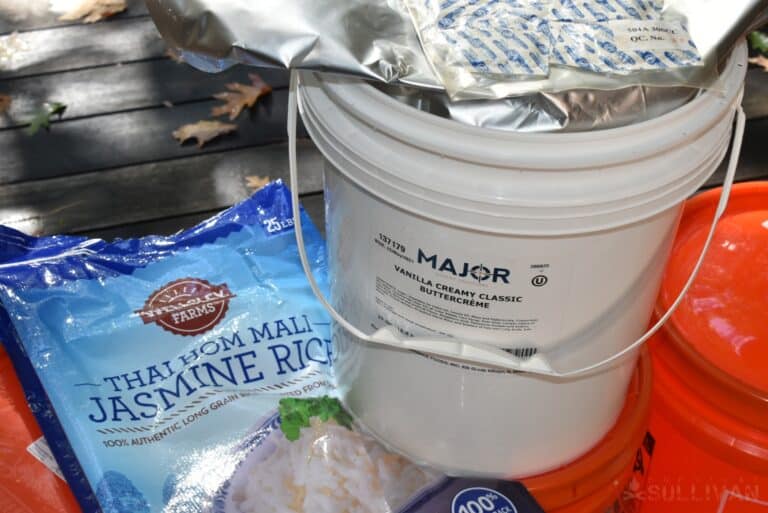
What do you need to survive? I mean what you really need to survive? You need air, water, food, and shelter. That’s what you need to survive. You don’t necessarily need money. Money can get you those things, but only if it can get you those things. Take my meaning?
You can’t eat money, and you can’t take it to heaven, so it’s in your best interest to start stocking up on the things that your family actually needs now.
If you call yourself a prepper, you should already be laying in a supply of drinking water, food, and the other things you need to keep your family alive during a crisis. A dollar collapse definitely qualifies!
Considering that the dollar will be nearly worthless, society will, at least in part, quickly return to a barter model. People will trade the things they have for the things they need or merely want.
You’d be wise to start laying in large stockpiles bartering items like extra food, hygiene items, entertainment items, alcohol, tobacco, and more. This stuff is always worth its weight in gold during such times…
Every smart prepper will network at every opportunity because every person in your social network is both an opportunity and a provider.
The more people you know, and the more people know you, the more chances you have to get things done, get a favor, get help, or solve a problem.
This is most easily done with your extended family members, friend network, acquaintances, and neighbors, but you should also be doing this professionally, so that in case you lose your job or primary source of income, there’s a better chance you can land on your feet and find another one quickly.
Speaking of bartering, it would behoove you to learn how to do it right. I promise you that your great-grandparents knew how, and if you have a family member or significant other right now that loves getting a deal, or is known as a haggler, they do too.
There’s an old saying that if both parties are happy when the deal is done, then it is a good deal. I agree with that, and I even admire it. But it’s also true that in any deal there is money, or we’ll call it value, on the line and it goes to the person who is best at negotiation.
This is just as much an art as it is a science. If you want your resources to go the distance, you’ve got to learn how to do it.
Having things you need to survive is one thing, but being able to actually produce those things yourself is another. When it comes to sustainment, nothing beats it!
You should be learning how to garden, how to raise livestock, how to drill a well and purify water, how to build a house, or at least construct an effective shelter, how to set up your own electrical generation infrastructure, and a whole lot more.
If you lose everything or if society just goes to pot, these skills are utterly priceless. You are a lot more capable than you think, if only you will take the time to learn and practice.
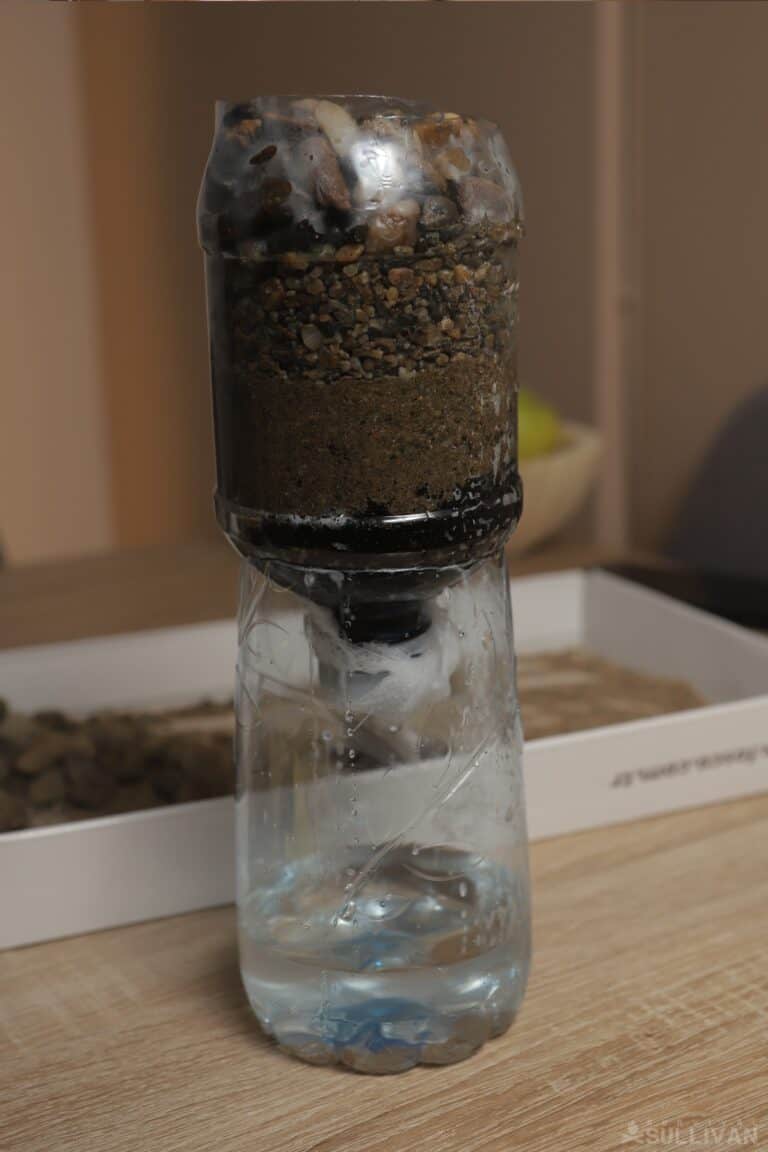
Speaking of skill-building, now more than any other time is the right time to start learning new, practical skills. I’m talking about skills that are always valuable in modern society.
Do you know how to frame a house or do plumbing? Are you an electrician? Do you have any lumberjack skills? Medical skills? Are you a good mechanic? Can you work on HVAC?
Skills like these are always in demand, somewhere, and they can be a great hedge against job loss. More than that, those skills can also be put to use for bartering. Trading knowledge for material goods is almost always going to be in your favor!
If you or anyone in your family is dependent upon medications for the management of chronic health conditions, you’ll want to be stocking up on them now while you can.
Lots of folks, even preppers, take for granted that the factories that churn out these medicines will somehow be magically protected against the effects of the economy going under, but that’s not the case.
Worse, our hideously corrupt government and medical-industrial complex might even decide that now is the time to raise prices on those medicines.
Get them now while you can, and they are at least more affordable than they will be. Do keep in mind, though, that medications are perishable and will need to be rotated. You’d be wise to check the prospe
Joining a MAG, or mutual assistance group, can be a great way for any prepper—but especially preppers who don’t have large friend networks or immediate families of their own—to find a place with a tribe of like-minded people for mutual benefit.
MAGs are another detailed subject I can’t properly cover here, but they can range in scope and investment from a loose coalition of people living in a town or county that agree to help each other during times of disaster to tight-knit clans that live in an actual prepper compound or planned community.
If you’re all alone, or mostly alone, belonging to such a group might be a lifesaver if the dollar dies a terrible death.
For you savvy preppers that already have bug-out routes (BORs) planned and mapped to your bug-out locations (BOLs), as things progressively get worse, you need to put more time into scouting those routes and maintaining, or checking, those bug-out locations.
It would not do for you to take off, fleeing to safety as society starts to crumble around you, only to find that your location is occupied or inaccessible, or worse, that your route is impassable with no backup.
Do keep in mind that the implosion of the US dollar might actually herald even worse events to come…
As scary as these times are, as dire an outlook as it is, and as much as you have to do to prepare for them, don’t forget to check in on your family and friends. If they are smart and sane, they will have the same worries and anxiety that you do, and sharing them, and planning together, can be valuable.
Something else to remember is that times of financial calamity invariably lead to an increase in people giving up hope and “self-selecting.” Sometimes you won’t see that coming until it’s way too late. Checking in early, offering assistance, encouragement, and hope, can bring people back from the edge.
And this is all part of networking, too, like I said above!
It is really difficult to pick which places are going to turn into dangerous hellscapes when society starts to fray at the edges, because ultimately there are just too many variables, but historically it is the cities, and particularly the inner cities, that will erupt into violence.
If you live in one of these urban jungles, or very near to one, you should consider moving if you can.
Make no mistake, living out in a sparsely populated rural area has its own challenges and risk factors, but unless you have enough trusted people with you to lock down a block or an apartment building, staying in the cities is not a good idea.
Keep in mind too that violence tends to radiate out from the city as raiding, cultural animus, class violence, and more start to take hold during times of instability. You might want to skip out on simply moving to the suburbs or the nearest bedroom community.


Tom Marlowe practically grew up with a gun in his hand, and has held all kinds of jobs in the gun industry: range safety, sales, instruction and consulting, Tom has the experience to help civilian shooters figure out what will work best for them.
